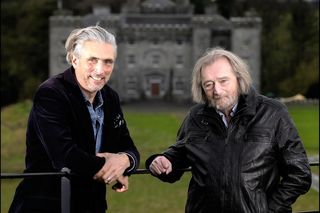Best Interests review: Sharon Horgan’s new show is unremittingly grim – but also funny
BBC drama featuring young Dublin actor Niamh Moriarty poses some difficult questions but is also funny


Best Interests (BBC One) is a hard watch if you’re not the parent of a disabled child. If you are the parent of a disabled child, I imagine that it will not tell you anything that you did not know before. The life-threatening emergencies, the gossip of the neighbours, the other children in the family who are not getting the attention they need.
And then there is the disabled child herself: her friends who die, her dates almost ruined because cinemas can’t accommodate two wheelchairs side by side, and the growing realisation that she might not live as long as other members of her family. Much of this cannot be helped but it’s the things that can be helped — and are not — that really hurt.
At one point a parent of a disabled child says: “They hate disabled people.” Whether this refers to the medical profession, or to social services, or to society in general is not clear; it’s very possibly true.
Best Interests is written by the playwright Jack Thorne. His other television work includes Care, set in a Liverpool nursing home during the Covid epidemic. Thorne himself is disabled.
So far there is nothing here about the hoists, the adult nappies or the sheer back-breaking labour that goes into caring for a severely disabled person at home.
The four-part series concerns itself firmly with the right of doctors to withdraw medical treatment from Marnie, a charming teenager with a rare form of muscular dystrophy, played by the Dubliner Niamh Moriarty.
Sharon Horgan and Niamh Moriarty in Best Interests. Photo by Mark Johnson via BBC
Marnie has first another chest infection, then a cardiac arrest with resulting brain damage. She is in a coma and on a ventilator. Her doctor says that Marnie has been through enough, and wants to move her to palliative care.
Marnie’s parents, Nicci and Andrew, absorb this news very differently. Andrew (Michael Sheen) moves quickly into grief. Marnie’s mother, Nicci (Sharon Horgan), is defiant. They’ve had so many predictions of disaster before. The doctors don’t know what they’re talking about. They are trying to get rid of Marnie, but Nicci will fight for her daughter as she always has done. Nicci has a ruthless love for her daughter: she doesn’t care what the doctors have to do to Marnie, as long as they keep her alive.
From the start, Best Interests is seen to be heading to a court hearing, as Nicci battles on.
Meanwhile, their older daughter, Katie (Alison Oliver), is a loving sister. She is home alone as her frantic parents spend their days and nights at the hospital. Katie has a relationship that her parents don’t know about, and is also grieving for Marnie and their lives together.
This, then, is real drama: no one is right and everyone is right. It is a matter of life and death.
And underneath are some very difficult questions. Are parents always right about the welfare of their child? Does the medical profession simply get tired of treating people whom they know will only get worse? When did the ordinary person lose all faith in authority?
Best Interests could be unremittingly grim but it’s also funny. And interesting. Because it is about an ordinary family dealing with the issues none of us wants to face.
















